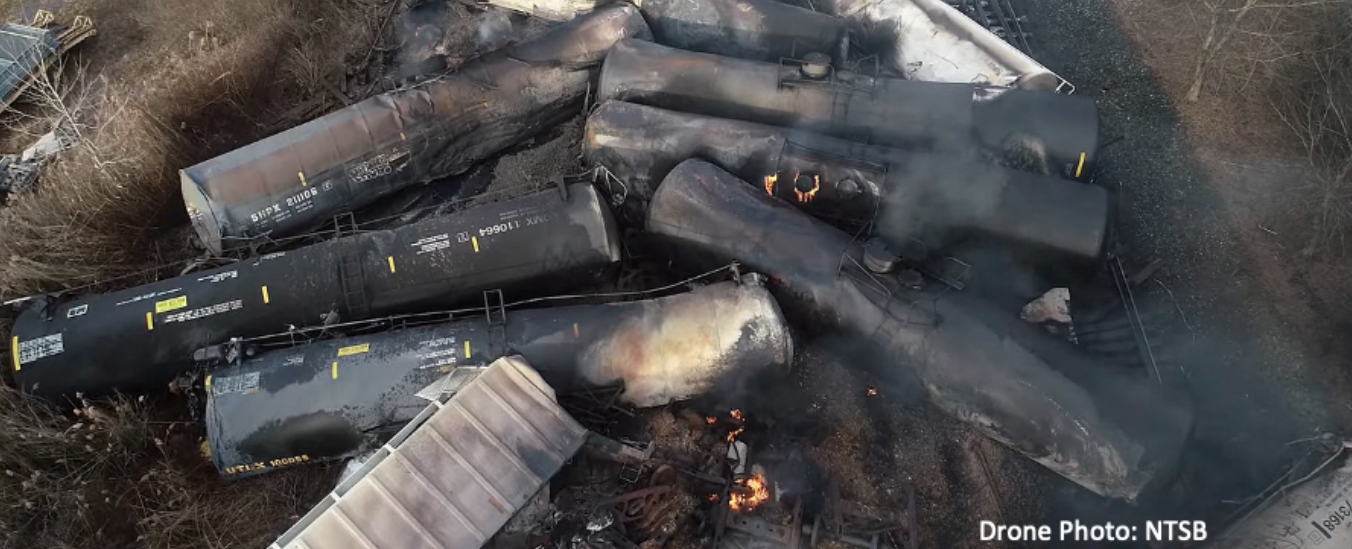Far Ranging Impacts of East Palestine Train Derailment
The derailment of train cars carrying toxic vinyl chloride in East Palestine last year impacted areas from Wisconsin to Maine and North Carolina. Snow and rain samples that were collected and analyzed across 16 states show abnormally high pH levels and chloride contamination during the weeks following the train wreck.
Research published last month, Widespread Impacts to Precipitation of the East Palestine Train Accident, details the far-ranging effects of the train crash and of the subsequent fires that burned the contents of the trains and released “large amounts of hazardous compounds to the ambient atmosphere.” The analysis looked at levels of inorganic compounds such as dioxin and PFAS that are not regularly checked by federal precipitation samples.


Of the 38 train cars that derailed last year, at least 11 were carrying hazardous materials. The cargo included volatile organic compounds such as vinyl chloride, 2-butoxyethanol, and 2-ethylhexyl acrylate. In an attempt to prevent a larger explosion, authorities at the time conducted a “controlled release and burn.” Surrounding communities were evacuated, water contamination was reported, strong chemical odors filled the air, and EPA atmospheric monitoring found significant amounts of acetone, benzene, and other VOCs in and around East Palestine.
One of the researchers, David Gay from the University of Wisconsin, indicated that rain with a high pH can “burn skin and harm flora and fauna.” Gay also explained that, “Chloride, or chlorine, can be a potential health and environmental threat.”
The findings of this research team documents that the “major consequence from the accident was a widespread multi-pollutant impact over multiple states that extended beyond the accident week.”

